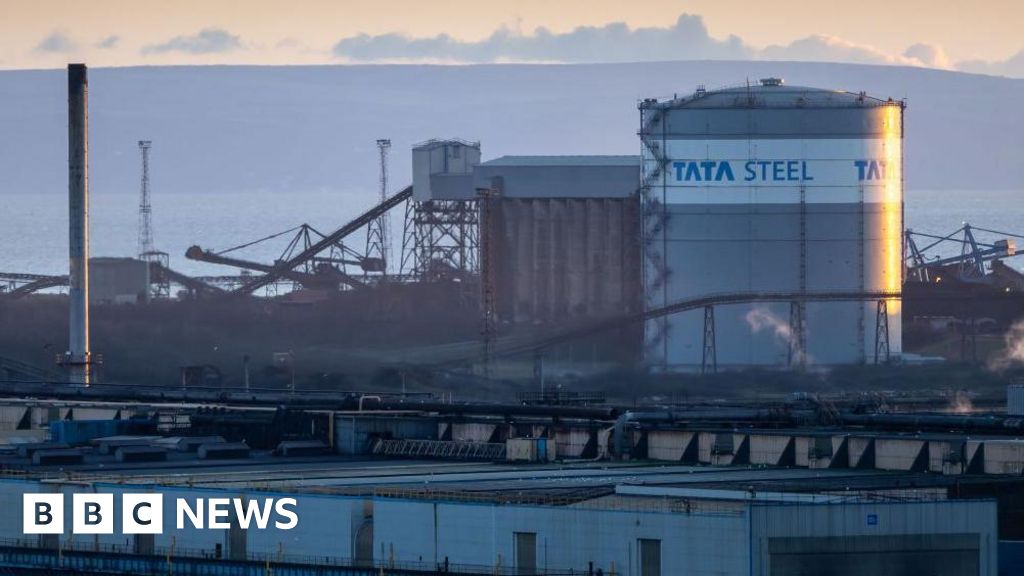- Author, Shelley Phelps
- Role, Westminster correspondent
The new Labour government is working on a better deal for the Port Talbot steelworks, according to a senior Welsh Labour MP.
The previous Conservative government agreed a £500m rescue package to help keep the plant open and shift to greener production methods, but as part of that Tata Steel said 2,800 UK jobs would be lost.
Rhondda and Ogmore MP Sir Chris Bryant said he was “hopeful” ministers in Cardiff and Westminster could reach an agreement with the company to save jobs.
Tata responded to Labour’s election victory by saying it will “be engaging with new ministers over our ambitious plans to invest in and transform Port Talbot”.
Sir Chris said: “We need to make sure that Tata don’t make any sudden moves that make it impossible for us to unpick what was a very bad deal – that was originally agreed by the Conservative government.
“The job of politicians is to try to make the impossible possible and that’s exactly what we’re going to try and do here.
“Every sinew will be strained to try and make sure that we work as a single government, Welsh government working with Westminster government, to try and deliver the best possible jobs, to preserve so many jobs.
“Because it’s not just about the people who work for Tata Steel. It’s also about the whole economy in that region.”
Tata Steel UK head Rajesh Nair said he was looking forward to working with the UK government on growing green steel production.
“We will be engaging with new ministers over our ambitious plans to invest in and transform Port Talbot with electric arc furnace steelmaking, and to support our workers through this necessary but difficult transition,” he said.
One of the furnaces at the steelworks was closed last Friday and a second will shut in September.
That will end Port Talbot’s ability to produce liquid iron from ore.
The company has said that Port Talbot’s blast furnace operation was incurring losses of £1m a day and was financially unsustainable.
Tata has been in talks with unions since January when it unveiled plans to radically transform its operations to deal with its financial losses and cut carbon emissions.
The blueprint was dubbed a “crushing blow” and the “worst-case scenario” by unions.

